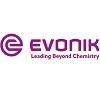
Content sponsored by:
Evonik Animal Nutrition
Mepron® supplementation during the transition phase and in early lactation increases DMI and performance of dairy cows
Published: November 8, 2019
Source : Claudia Parys, Ruminant Nutritionist - Global Technical Support, Evonik Animal Nutrition.
Transition – a metabolic challenge
The transition phase is the period of exceptional metabolic challenges. Daily milk yield increases rapidly but DMI does not follow fast enough. Energy balance is negative and NEFA (non-esterified fatty acid) levels go up as cows mobilize body fat. Keeping close-up DMI on a high level prepares the cow for high DMI post calving. Preventing metabolic issues in this sensitive phase is key to maximize peak performance.
University of Illinois trial
The research group of Dr. Juan Loor at the University of Illinois conducted a trial with 60 cows in two groups of 30 cows each. The trial started 28d prepartum and continued through peak lactation (60 DIM). The control ration was identical to the treatment ration except for the added Mepron® (0.09% Mepron® in DM prepartum and 0.10% in DM postpartum).

DMI increased with Mepron®
Cows that received additional methionine had 10% greater DMI throughout the transition period. Most of the difference in prepartum DMI occurred in the last two weeks before calving when the depression in DMI was less for the treatment cows. Keeping cows on feed as calving approaches is vitally important, since postpartum DMI is positively correlated with prepartum DMI

Lower NEFA concentration and better liver function with Mepron®
What was driving this difference in feed intake? Circulating NEFA levels were lower in cows receiving additional methionine. At calving, NEFA levels were 25% lower in this group, and NEFA are known to suppress DMI. In addition, gamma-glutamyl transferase was 37% lower in Mepron® supplemented cows indicating improved liver function. Previous research has shown that cows with better liver function have greater DMI. Other factors that may have contributed to better DMI were lower inflammation and less oxidative stress.
Increased performance with Mepron®
The greater DMI led to higher milk production in fresh cows and at peak lactation. Milk production within the first 4 weeks of lactation was 4.1 kg greater for the methionine treatment, and at peak lactation, the difference was even 4.4 kg. Energy-corrected milk was 4.3 and 4.7 kg higher for the treatment ration since it generated greater yields of fat, protein, and lactose. In addition, Mepron® supplemented cows responded with significantly increased milk protein concentration.

Batistel F, Arroyo JM, Bellingeri A, Wang L, Saremi B, Parys C, Trevisi E, Cardoso FC, Loor JJ (2017): Ethyl-cellulose rumen-protected methionine enhances performance during the periparturient period and early lactation in Holstein dairy cows. J Dairy Sci 100: 7455-7467
Related topics:
Authors:

Recommend
Comment
Share

Would you like to discuss another topic? Create a new post to engage with experts in the community.



